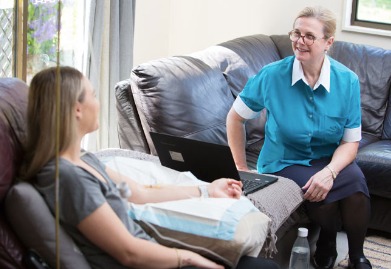 Home infusions of natalizumab for relapsing-remitting MS are feasible, more convenient and less expensive than usual administration of the monoclonal antibody in the clinic, researchers say.
Home infusions of natalizumab for relapsing-remitting MS are feasible, more convenient and less expensive than usual administration of the monoclonal antibody in the clinic, researchers say.
A South Australian pilot study, randomised 37 adults on natalizumab for RRMS to home infusion delivered by nurses or usual clinic-based care for three infusions then crossed them over for the next three infusions.
Patients had been diagnosed for an average of 8–9 years, and been receiving natalizumab for nearly 5 years.
The study, published in Annals of Clinical and Translational Neurology, found no adverse events in either the home infusion or usual care groups. There was also no difference between infection rates in the home infusion and usual care groups.
Participants who had recently had home infusions were significantly more satisfied with the convenience of their treatment than those who most recently had infusions in the clinic.
“Convenience provided patients with autonomy and control over their medical appointments and lifestyle, and freed up time and capacity for family and work. Participants were able to flexibly change the timing of their medical appointment by contacting the infusion nurse; one participant even elected to have an infusion in their workplace,” the study said.
Quality of life as measured by SP-36 improved slightly between treatment periods for both groups of patients. Other quality of life measures also indicated fewer problems over time with no statistically significant interactions between group and treatment period.
Rates of treatment adherence were similar in both groups.